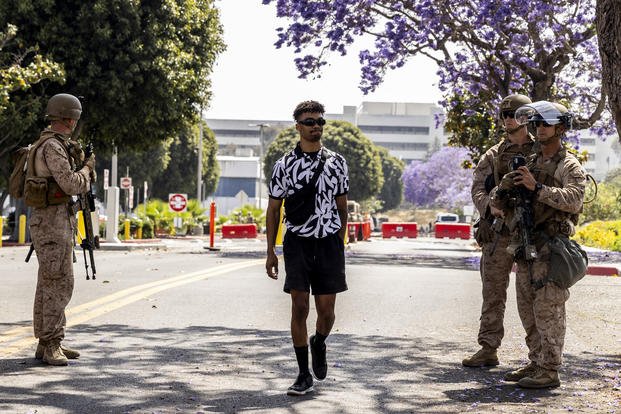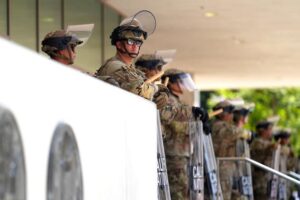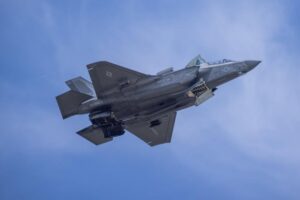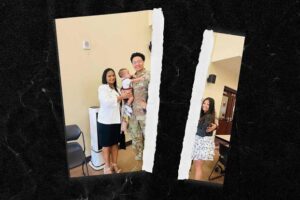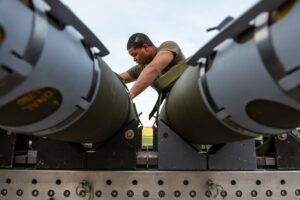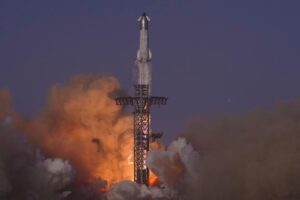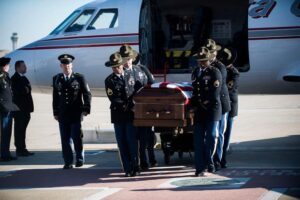Marines Detain Civilian During Los Angeles Deployment
The recent deployment of U.S. Marines to Los Angeles as a response to immigration protests has marked a significant moment in the interplay between military and civilian spheres. Just hours into their new assignment, Marines were involved in the temporary detention of a civilian, illustrating the challenging dynamics of their presence in the city.
On Friday, as Marines began their duties at a federal building in Los Angeles, they detained Marcos Leao, who inadvertently crossed onto the premises. Leao, unaware of the situation due to his headphones, was initially unresponsive to the Marines’ commands.
The Marines’ deployment by President Donald Trump aims to bolster security during ongoing protests against the administration’s immigration measures. This incident is the first recorded instance of active-duty troops detaining a civilian in Los Angeles. Although Leao was released without charges, his detention underscores the proximity of military personnel to law enforcement actions in the area.
A spokesperson from U.S. Army North clarified that the troops have the authority to detain individuals temporarily under specific conditions until they can be handed over to civilian law enforcement. This aligns with President Trump’s broader immigration crackdown strategy, which includes National Guard involvement in security during immigration raids. More details on the deployment.
Leao, a former Army combat engineer, explained that he was rushing to a Veterans Affairs appointment when he stepped past a caution tape outside the building. “I had my headphones in, so I didn’t hear them,” he recounted. “They told me to get down on the ground. I basically complied with everything they were saying.” He was detained for more than two hours before being released without charges after Los Angeles police arrived.
According to a U.S. official speaking anonymously, Leao had crossed a designated line, prompting the Marines to act as per their instructions. Meanwhile, a Los Angeles Police Department spokesperson confirmed their response to the scene but noted that no charges were warranted.
In preparation for this deployment, the Pentagon established specific guidelines for Marines, focusing on de-escalation techniques, crowd control, and the rules of force application. Despite this, the presence of active-duty forces on domestic soil raises complex legal and ethical questions.
Gary Solis, a former Marine Corps prosecutor, cautioned about the potential implications of such military-civilian interactions, suggesting it might signal attempts to weaken the Posse Comitatus Act, which restricts military involvement in domestic law enforcement. Solis remarked, “I believe that this is an inevitable precursor of things yet to come when you put troops with guns right next to civilians who are doing whatever they do.”
With 200 of the 700 deployed Marines now stationed in Los Angeles, alongside 2,000 National Guard members, the city is witnessing a significant military presence. This deployment continues as part of the administration’s strategy to manage the repercussions of its immigration policies. For more insights and updates, visit the original report.

